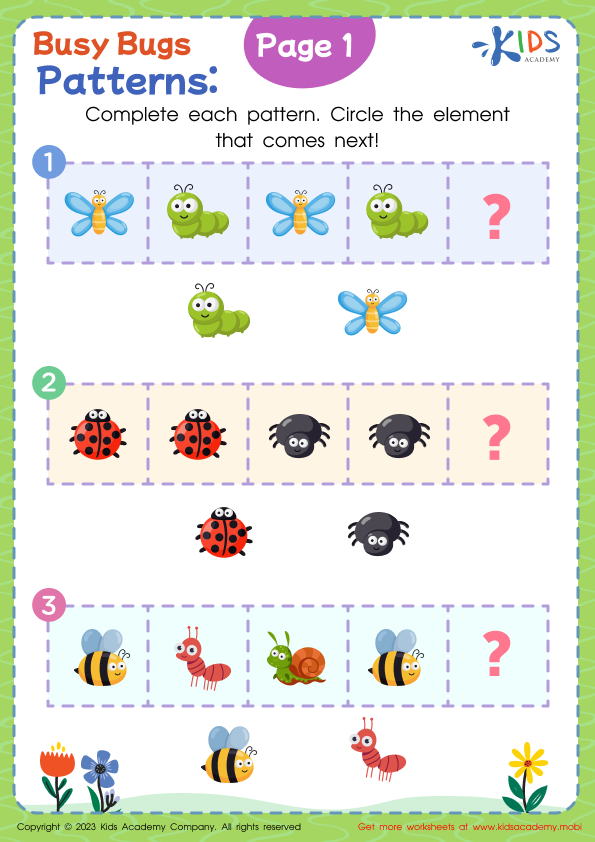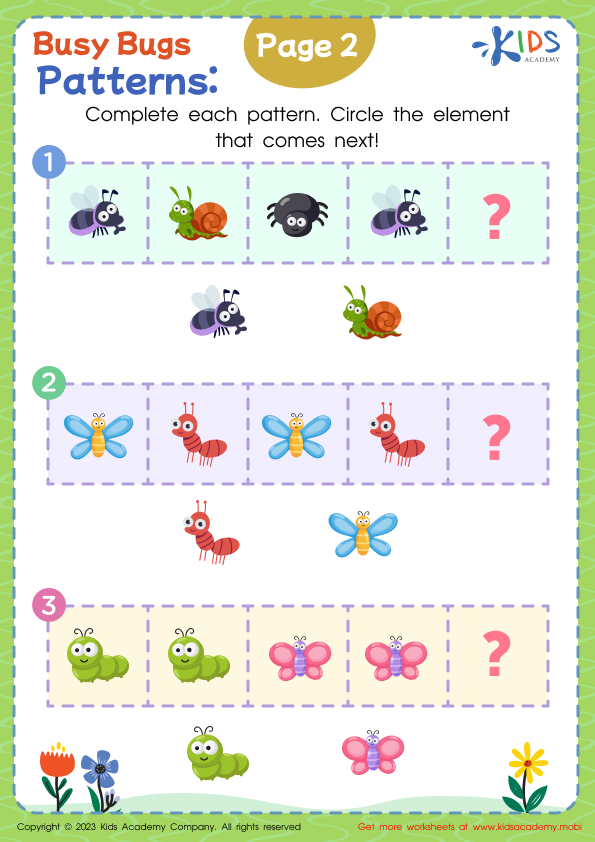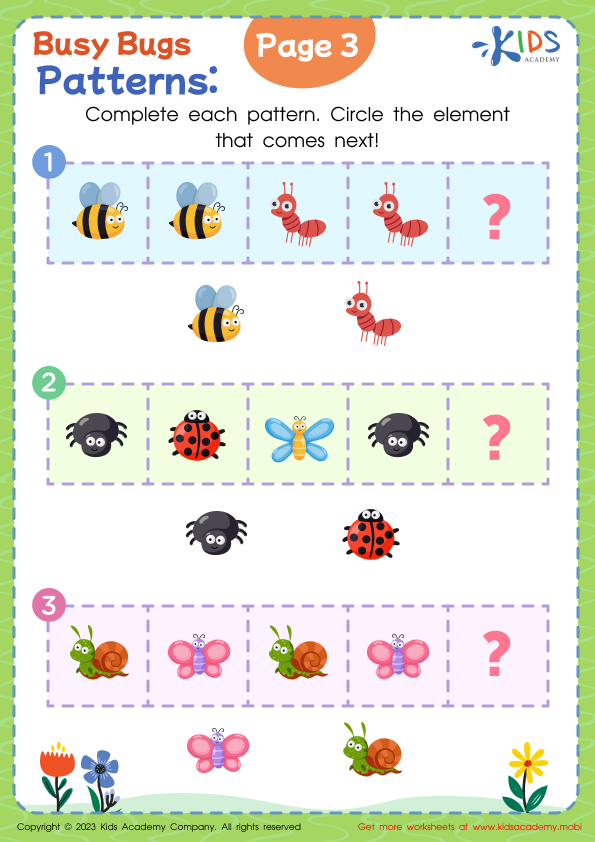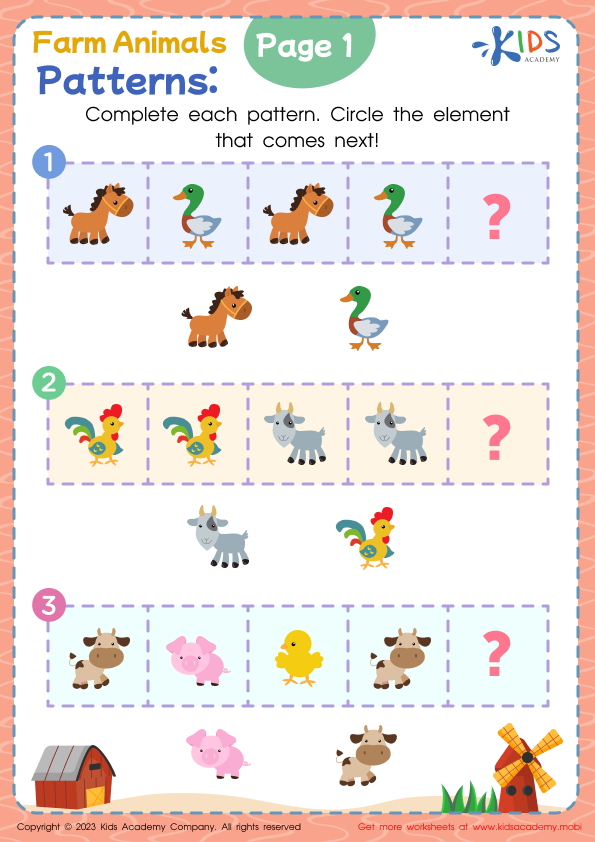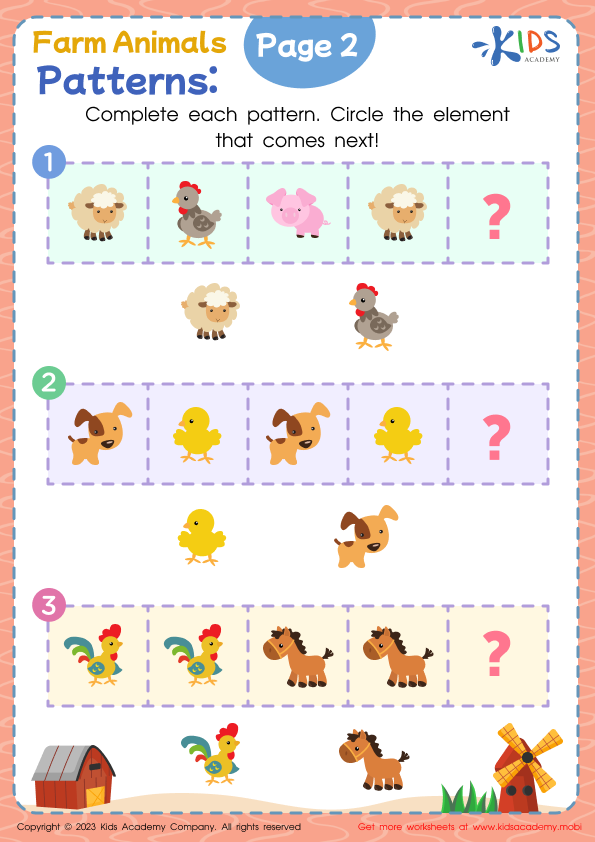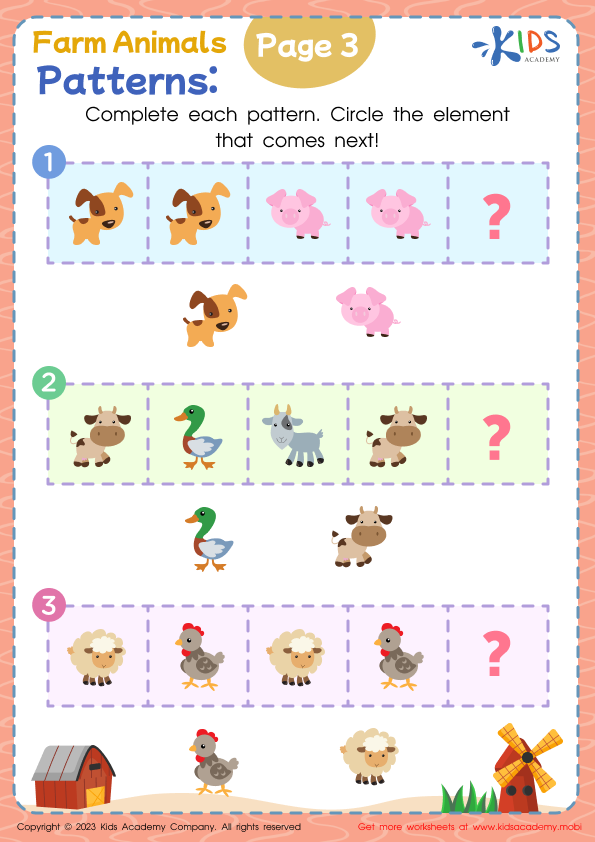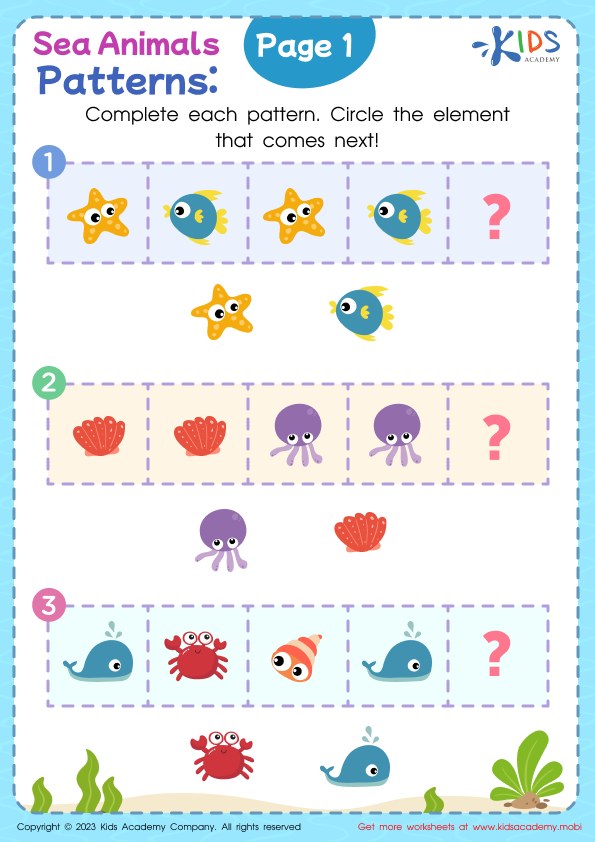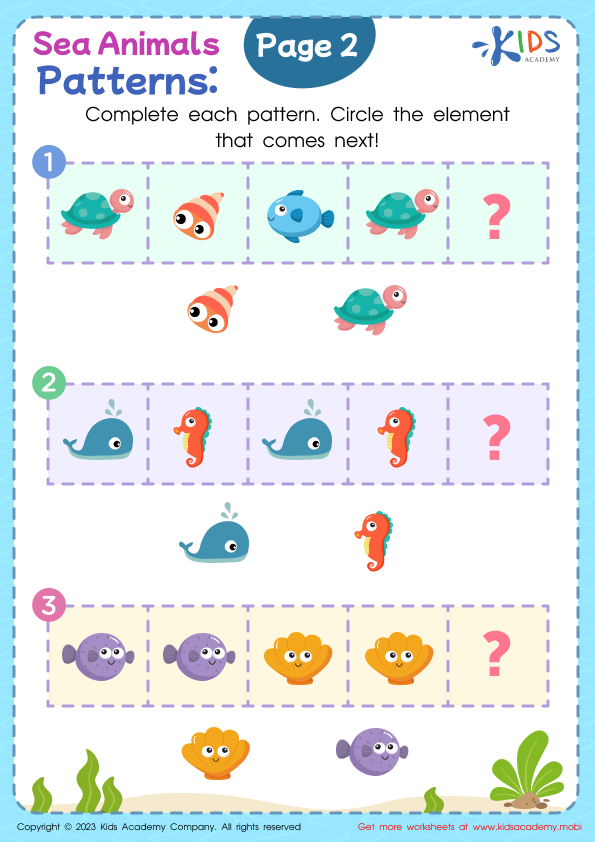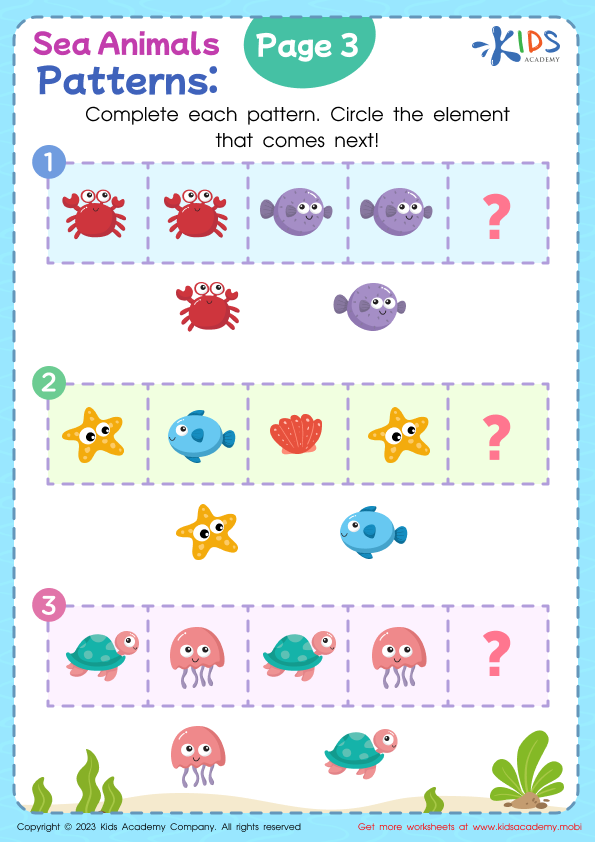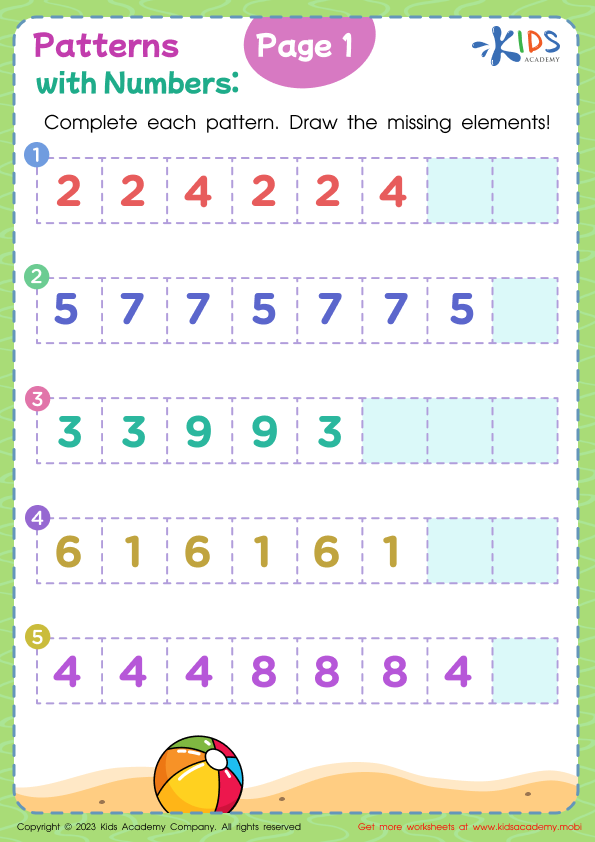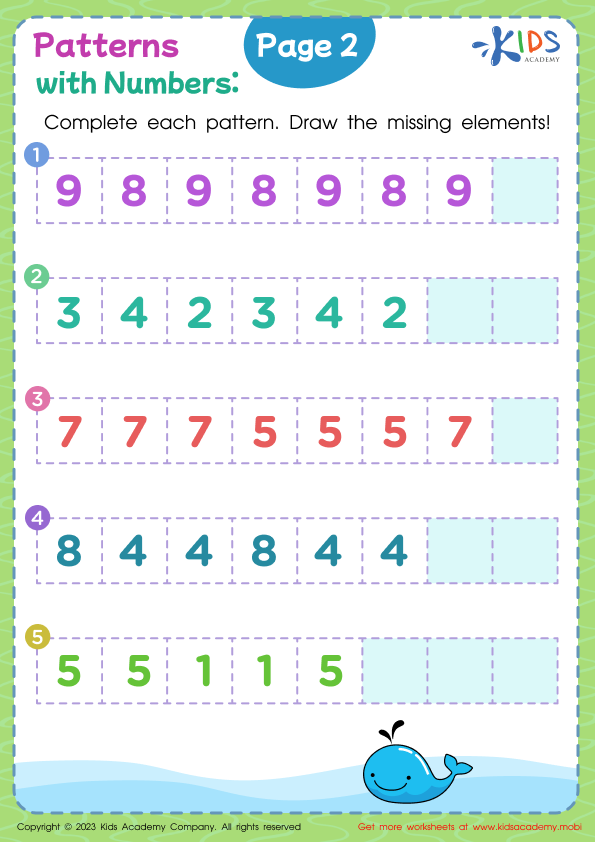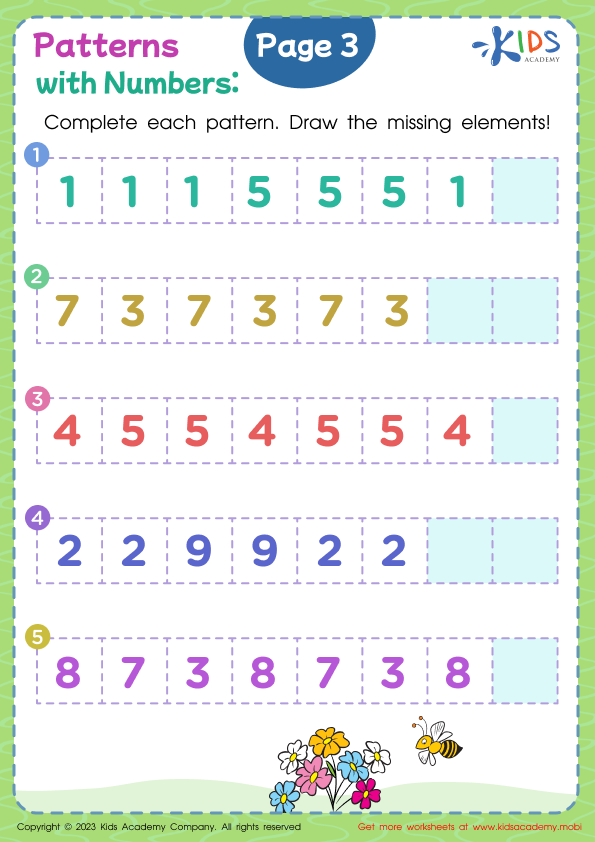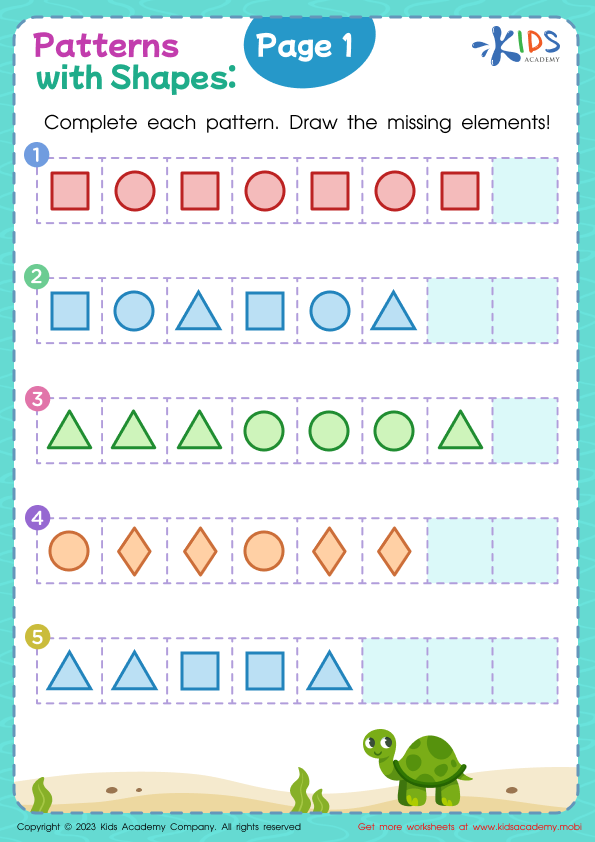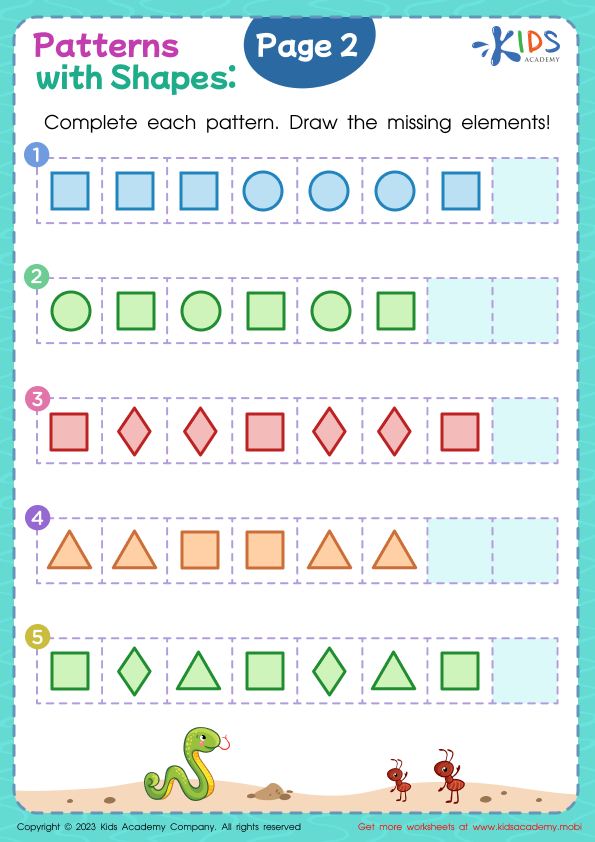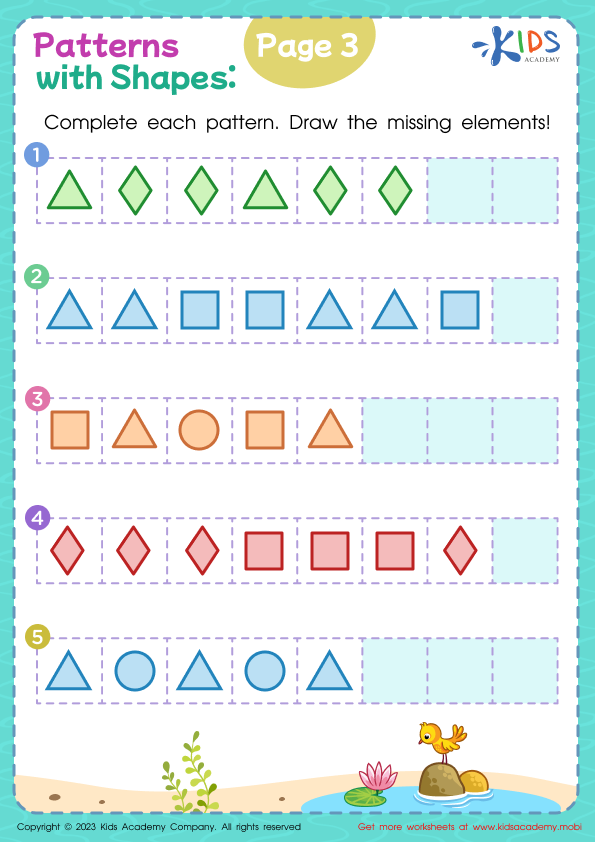15 filtered results
-
From - To
Discover our delightful collection of Easy Patterns Worksheets designed to help young learners recognize and predict sequences effortlessly. These engaging activities encourage children to complete and create various patterns using shapes, colors, and numbers. Ideal for preschoolers and kindergarteners, our patterns worksheets boost critical thinking, hone fine motor skills, and establish early math foundations in a playful manner. With vivid illustrations and simple instructions, these printable resources are perfect for classroom use or as fun, educational challenges at home. Spark your child’s love for learning with our Easy Patterns Worksheets, ensuring a bright mathematical future!
Easy Patterns are fundamental for early childhood development, significantly benefiting both parents and teachers as they aim to foster cognitive growth and foundational math skills in young children. These patterns teach essential skills like recognition, prediction, and logical thinking. For instance, recognizing a simple ABAB pattern helps kids understand sequences, laying the groundwork for more complex mathematical concepts they'll encounter later.
For parents, engaging children with Easy Patterns during playtime or everyday routines can be a fun and effective way to support their learning outside of school. It transforms ordinary interactions into educational opportunities, encouraging curiosity and a love for learning.
For teachers, incorporating Easy Patterns into the curriculum is crucial for helping students grasp the basics of sorting, classifying, and series completion. This not only boosts their math skills but also enhances their problem-solving abilities. Further, mastering these patterns helps young learners in understanding and organizing information, making them more adaptable in any learning scenario.
Ultimately, whether in the home or classroom setting, Easy Patterns are invaluable in building a foundation for future academic success, fostering critical thinking skills, and promoting an engaged and interactive learning environment. Parents and teachers should prioritize this aspect of early education to ensure well-rounded cognitive development.

